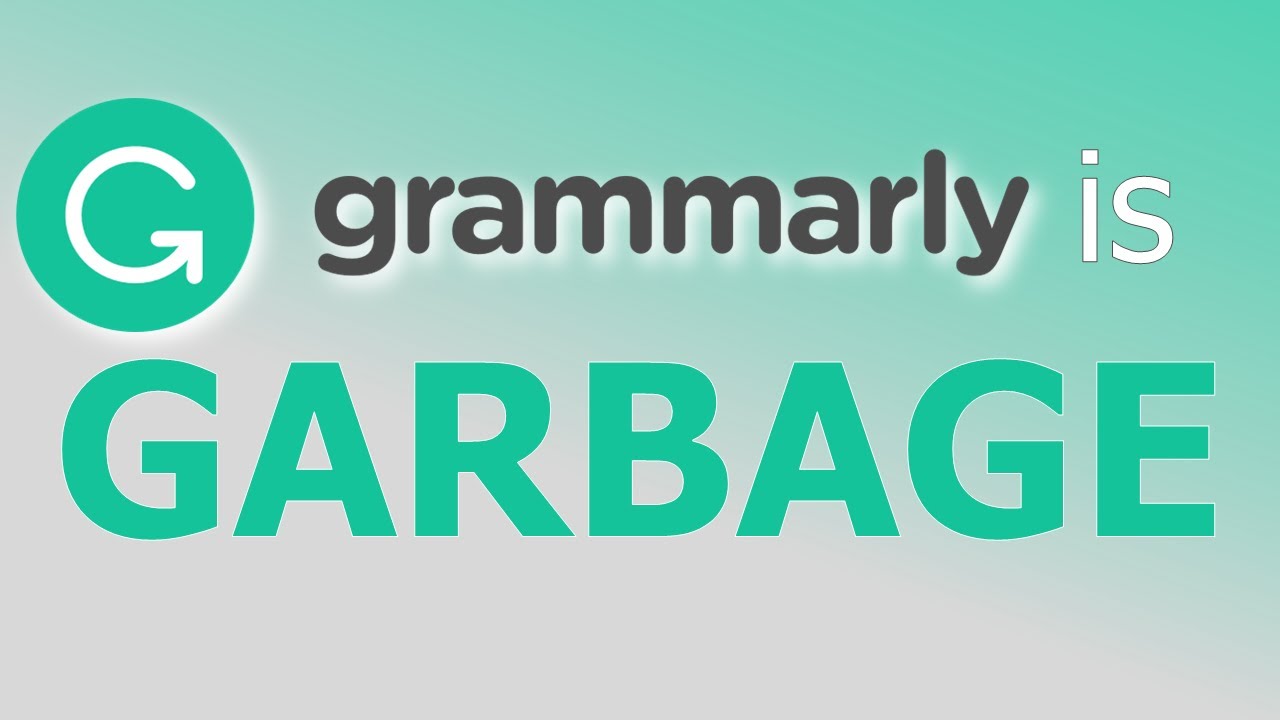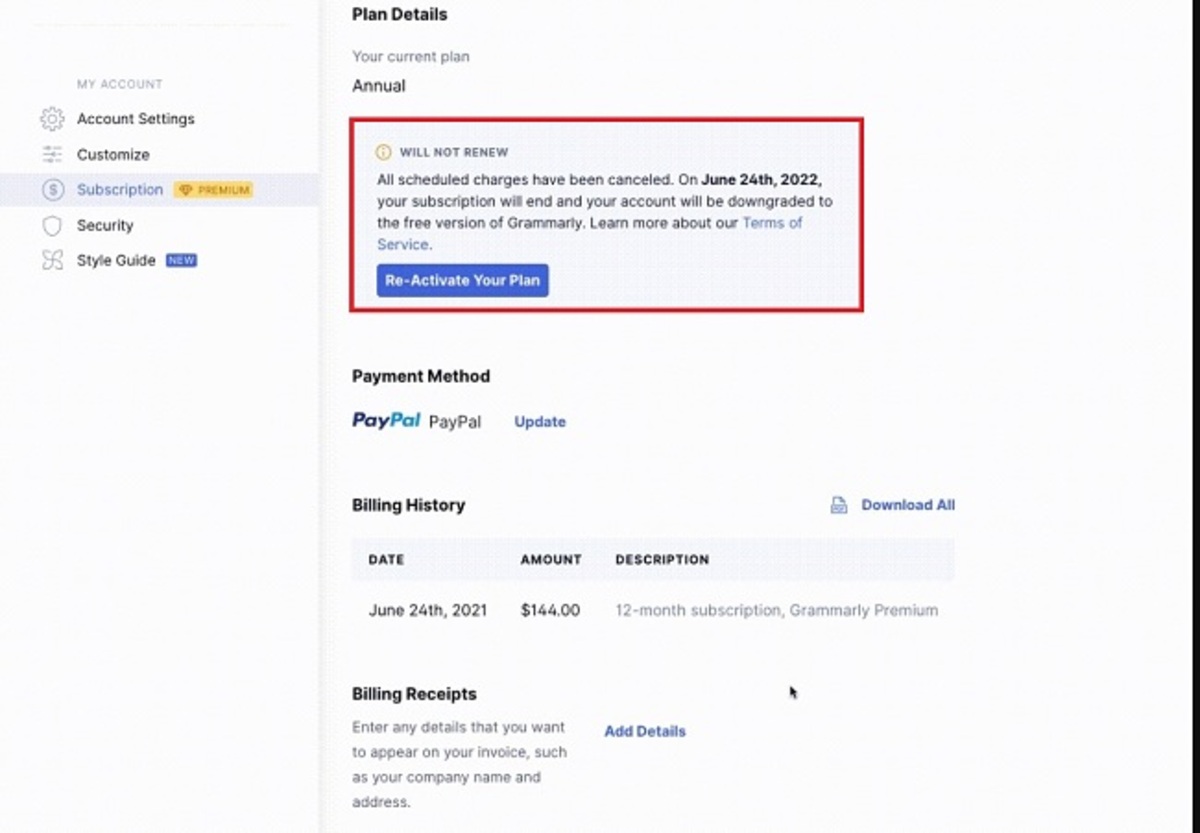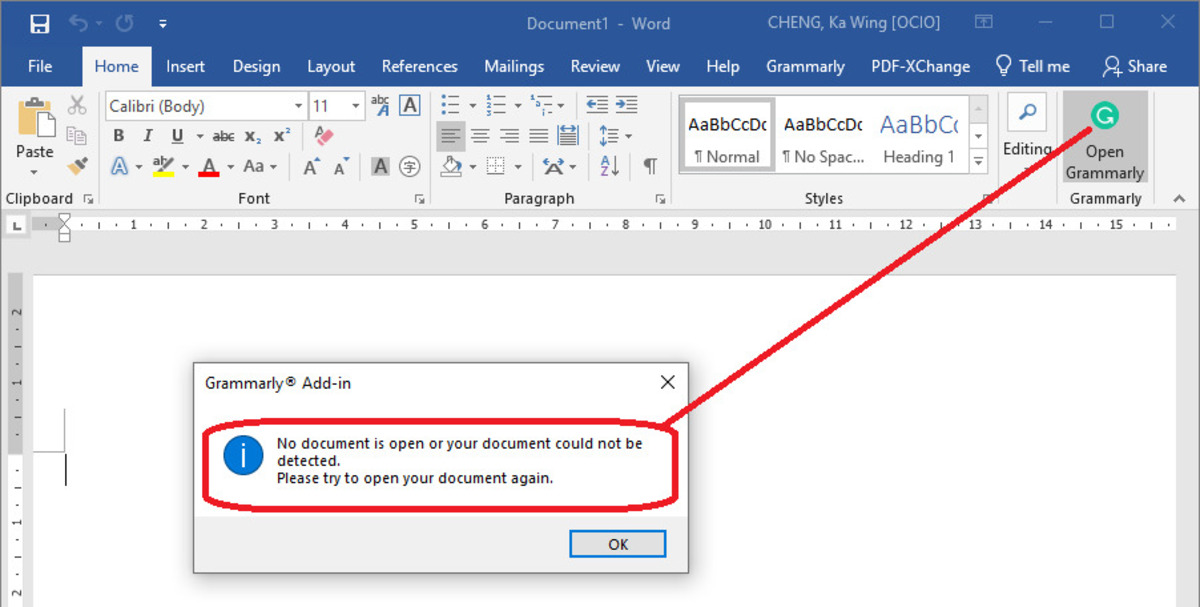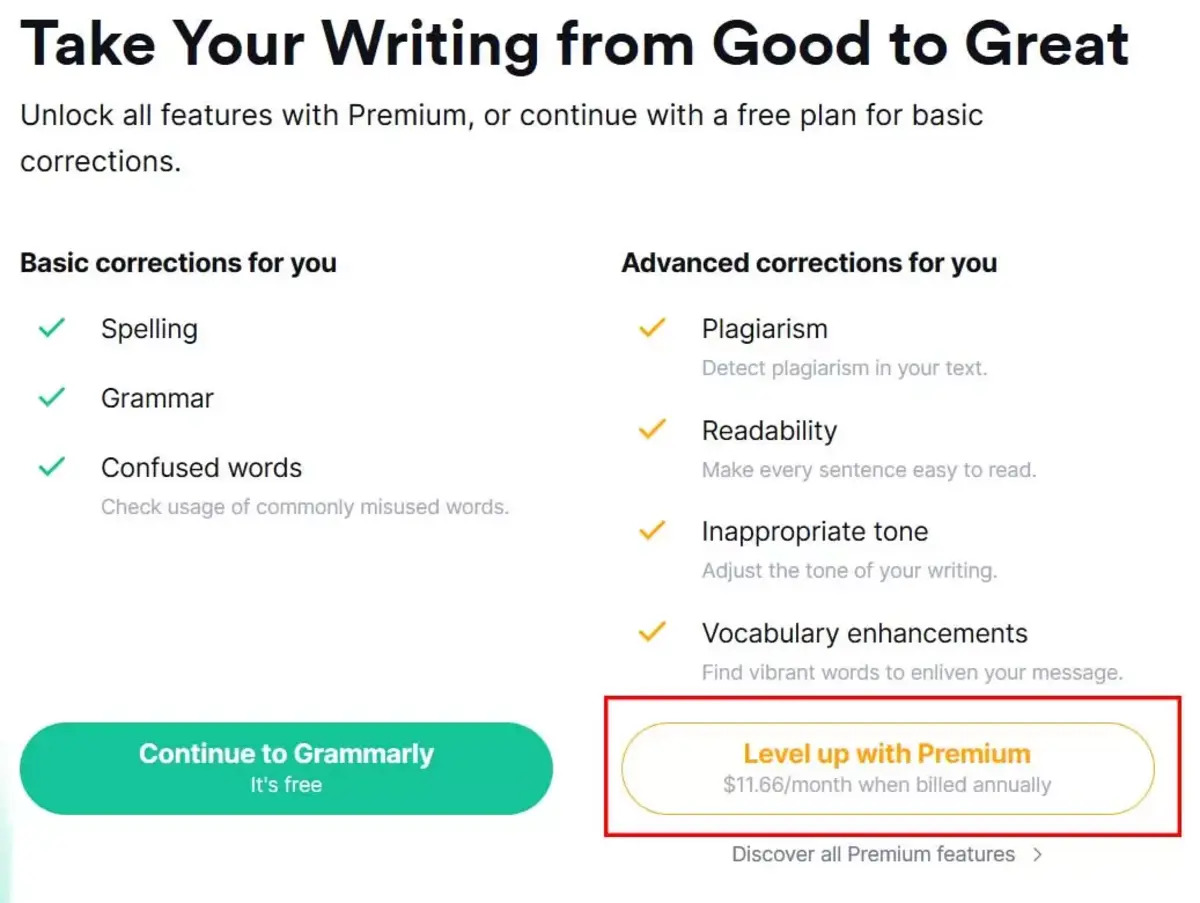Introduction
Grammarly has gained immense popularity among writers, students, and professionals who seek to improve their writing skills and produce error-free content. It is marketed as a powerful grammar and spelling checker that promises to enhance the quality of your writing. However, while Grammarly has many useful features, it is not without its flaws. In this article, we will explore some of the reasons why Grammarly may not always be the best choice for improving your writing.
Context awareness is a fundamental element of effective writing, and unfortunately, Grammarly falls short in this regard. It often fails to consider the nuances of language, resulting in suggestions that may be technically correct but contextually wrong. This lack of context awareness can lead to inaccurate and misleading suggestions, which can be detrimental to the overall quality and meaning of your writing.
Another issue with Grammarly is its tendency to provide incorrect suggestions. While it may catch some grammatical errors and typos, it doesn’t always provide accurate solutions. In some cases, it may flag perfectly valid sentences as incorrect or offer corrections that actually introduce more errors. Relying solely on Grammarly’s suggestions can, therefore, lead to misguided changes in your writing.
Grammarly heavily relies on artificial intelligence (AI) and automation in its grammar-checking process. While this can be beneficial for identifying certain errors, it also has its limitations. AI is not capable of fully understanding the intricacies of human language, and as a result, Grammarly may miss more subtle errors or fail to provide appropriate suggestions. Human proofreading and editing can often be more effective in ensuring the accuracy and clarity of your writing.
Furthermore, Grammarly has limited language support compared to other writing tools. While it does cover the basics of English grammar, it may not be as helpful for non-native English speakers or writers who need assistance with more specialized language usage. The lack of comprehensive language support can restrict its usefulness for a broader range of writers.
Lack of Context Awareness
One of the notable drawbacks of Grammarly is its lack of context awareness. While it excels at identifying grammatical errors and offering suggestions, it often fails to consider the broader context in which those errors occur. This can lead to misleading suggestions and changes that can undermine the quality and meaning of your writing.
Language is rich with nuances and subtleties, and proper writing requires careful consideration of the context in which a sentence or phrase is used. Unfortunately, Grammarly’s algorithms do not possess the ability to fully understand the intended meaning behind each word or sentence. As a result, it may offer suggestions that are technically correct but contextually wrong.
For example, Grammarly may flag a sentence as incorrect simply because it contains a certain word or phrase commonly associated with incorrect grammar. However, in specific contexts or writing styles, that word or phrase may be intentionally used for emphasis, rhetorical effect, or to convey a particular tone. blindly accepting Grammarly’s suggestions in such cases can cause your writing to lose its intended impact or meaning.
Moreover, Grammarly’s lack of context awareness can lead to a disregard for style and tone. Writing is not just about grammar; it is about expressing ideas, emotions, and engaging with the reader. Different writing styles call for different grammatical structures and word choices. However, Grammarly tends to apply a rigid set of rules without considering the stylistic preferences or intentions of the writer.
While Grammarly can be a helpful tool for catching common grammar mistakes and typos, it is essential to remember that it is not a substitute for human intuition and understanding. When using Grammarly, it is important to critically evaluate its suggestions within the context of your writing goals and style. Ultimately, the writer’s judgment and understanding of the intended message should prevail over Grammarly’s automated recommendations.
Incorrect Suggestions
While Grammarly aims to assist writers in improving their writing, it is not exempt from providing incorrect suggestions. While it might catch obvious grammatical errors and typos, it does not always provide accurate solutions or recommendations for improvement.
One common issue with Grammarly is its tendency to flag perfectly valid sentences as incorrect. It may mistakenly identify certain sentence structures or language usage as errors when, in fact, they are grammatically correct. This can create confusion for writers, especially those who are less confident in their writing abilities, leading to unnecessary revisions that can compromise the flow and effectiveness of the text.
In other cases, Grammarly may provide suggestions that are not appropriate or effective in the given context. It may prioritize a rigid adherence to grammar rules over the overall coherence and clarity of the writing. Writers often have their unique style, voice, and purpose for their writing, and blindly accepting Grammarly’s suggestions can result in a loss of authenticity and originality.
Furthermore, Grammarly’s suggestions can sometimes introduce new errors or change the intended meaning of a sentence. As an automated tool, it lacks the ability to interpret the writer’s intent and may offer corrections that alter the original message. Relying solely on Grammarly’s suggestions without careful consideration can lead to unintended consequences and miscommunication.
It is important to note that language is dynamic, and there are instances where grammar rules may be intentionally broken for stylistic or rhetorical purposes. However, Grammarly does not always account for these nuances and may flag unconventional or creative language usage as incorrect.
Therefore, it is crucial for writers to approach Grammarly’s suggestions with a critical eye and evaluate them in the context of their writing objectives. While Grammarly can be a helpful tool for catching glaring errors, writers should rely on their own judgment and understanding of the intended message to avoid blindly accepting incorrect suggestions.
Reliance on AI and Automation
Grammarly heavily relies on artificial intelligence (AI) and automation to analyze and suggest improvements to your writing. While this technology has its advantages, it also poses limitations and drawbacks that may hinder its effectiveness.
AI algorithms used by Grammarly are designed to identify common grammatical errors, spelling mistakes, and punctuation issues. It does so by comparing your writing against a vast database of rules and patterns. However, AI is not foolproof and can struggle with understanding the complexity and nuances of human language.
One significant limitation of AI-based grammar checkers like Grammarly is their inability to fully comprehend the context in which a particular word or phrase is used. Consequently, Grammarly may not provide accurate or appropriate suggestions that align with the intended meaning of the writer. This lack of contextual understanding can lead to misleading recommendations and incorrect corrections.
Furthermore, the reliance on automation can prove limiting in identifying more subtle errors or inconsistencies in writing. While Grammarly may detect obvious grammatical mistakes, it may not catch issues such as faulty parallelism, ambiguous sentence structures, or awkward phrasing. Human proofreading and editing are often essential to ensure not just correct grammar but also a smooth and coherent flow of ideas.
Another consideration is that Grammarly’s grammar suggestions can sometimes prioritize strict adherence to rules over the writer’s creative expression or desired style. It may overlook the importance of maintaining a unique voice and may offer suggestions that compromise the authenticity and individuality of the writer’s work.
Additionally, there are certain nuances of language and writing that may not be easily captured by automated tools. Factors such as cultural context, idiomatic expressions, or industry-specific terminology may require human understanding and judgment to ensure accurate and appropriate usage.
While AI and automation have undoubtedly made significant advancements in language processing, it is vital to recognize their limitations. Grammarly’s reliance on AI suggests that while it can be a helpful starting point for catching certain errors, it should not replace the critical thinking and creative judgment of the writer. Writers should view automated grammar checkers like Grammarly as tools to complement their own skills and knowledge rather than relying on them as the sole authority for improving their writing.
Limited Language Support
One of the drawbacks of Grammarly is its limited language support, which can be a hindrance for non-native English speakers or writers who require assistance with languages other than English. While Grammarly offers a robust grammar-checking system for English, its support for other languages is significantly limited in comparison.
English has a wide range of dialects, variations, and regional nuances. However, Grammarly tends to follow a standard set of rules and may not account for the diversity of English language usage across different countries and regions. This limitation can result in Grammarly marking valid sentences or phrases as incorrect, simply because they do not align with its predefined rules.
Moreover, non-native English speakers who are looking to improve their writing skills may find Grammarly’s suggestions less helpful or applicable. The English language can present complexities and challenges for non-native speakers, and a comprehensive language support system would be beneficial in such cases. However, Grammarly’s focus remains primarily on English, leaving non-English speakers with limited options for improving their writing in their native language.
Furthermore, for writers who work with languages other than English, Grammarly’s inability to provide accurate suggestions can be frustrating. It may not recognize the unique grammar rules or writing conventions of different languages, leading to inadequate or irrelevant feedback. This limitation can limit the usefulness of Grammarly for multilingual writers who seek assistance in multiple languages.
While Grammarly continues to expand its language support, the progress has been relatively slow. This means that writers who primarily work with languages other than English may need to seek alternative grammar-checking tools to ensure accurate and reliable assistance.
In summary, while Grammarly remains a powerful grammar-checking tool for English, its limited language support can be a significant drawback for non-native English speakers or multilingual writers seeking assistance in languages other than English. For writers working primarily with languages other than English, exploring other grammar-checking tools specifically designed for those languages may be a more effective approach to improving their writing.
Overemphasis on Grammar
One of the critiques of Grammarly is its overemphasis on grammar while neglecting other important aspects of writing. While grammar is undoubtedly essential for clear and effective communication, focusing solely on grammar can hinder the development of well-rounded writing skills.
Grammarly’s primary purpose is to identify and correct grammatical errors, providing an automated proofreading tool. While this feature can be valuable for catching typos and basic mistakes, it does not encompass the full scope of what constitutes good writing. Writing involves much more than just using correct grammar.
Writing encompasses elements such as structure, organization, coherence, clarity, and creativity. It is about conveying ideas in a compelling way, engaging the reader, and effectively communicating the intended message. Grammar is an important component of this, but it should not be the sole focus. Exclusively relying on Grammarly’s suggestions can create a narrow perspective on writing, where grammar becomes the sole measure of quality.
By overemphasizing grammar, Grammarly may prioritize rigid adherence to rules over stylistic choices or intentional deviations from traditional grammar usage. Good writing often involves bending the rules for artistic expression, deliberate sentence structures, or unique writing styles. Grammarly’s automated system may not recognize these intentional choices and flag them as errors, discouraging writers from exploring their creativity.
Additionally, grammar does not account for factors such as effective storytelling, engaging content, or persuasive arguments. These are crucial elements of writing that require attention beyond grammar. Writers should aim to craft a compelling narrative or argument that captivates and resonates with their audience, rather than solely focusing on grammatical correctness.
By placing too much emphasis on grammar, Grammarly may inadvertently stifle the development of a writer’s voice and style. It can limit the writer’s ability to experiment with different sentence structures, vocabulary choices, or narrative techniques. This overemphasis on grammar can hinder the growth and self-expression of writers.
While Grammarly can be a valuable tool for catching grammatical errors, it is important for writers to recognize that good writing encompasses a wider spectrum of skills. Developing a strong foundation in grammar is necessary, but writers should also focus on other aspects of writing, such as storytelling, organization, clarity of thought, and engaging content.
Disregard for Style and Tone
A notable limitation of Grammarly is its disregard for style and tone, as it tends to prioritize rigid adherence to grammar rules over the writer’s desired writing style and tone. While grammar is important for clarity and effective communication, style and tone play a significant role in establishing the writer’s voice and connecting with the intended audience.
Every writer has a unique style and tone that they want to convey through their writing. This can vary depending on the audience, purpose, and genre of the text. However, Grammarly’s automated system may overlook or undermine the writer’s preferred style by offering suggestions that conform to a rigid set of grammar rules.
For example, Grammarly may flag certain sentence structures or unconventional word choices as incorrect, without considering that they may be intentional stylistic choices made by the writer. This disregard for individual style and tone can stifle creativity and homogenize the writer’s voice.
Furthermore, the tone of writing is essential for establishing the intended emotional response from the reader. Whether writing in a formal tone for a professional audience or a more casual tone for a blog post, the writer must have control over the tone to effectively connect with the reader. Yet, Grammarly’s focus on grammar correctness often undermines the writer’s ability to convey the desired tone.
In addition, cultural and contextual differences can influence writing styles and tone. Grammarly’s adherence to a standard set of grammar rules may not consider the unique linguistic nuances or preferred writing conventions of different cultures or genres. It may overlook the importance of cultural sensitivity in writing and fail to provide suggestions that align with the cultural context of the intended audience.
Ultimately, relying solely on Grammarly’s grammar suggestions without considering style and tone can result in writing that lacks individuality and fails to resonate with the intended audience. Writers should have the freedom to make deliberate choices regarding sentence structures, word choices, and stylistic elements to effectively convey their message and connect with readers.
While Grammarly can be a helpful tool for catching grammar mistakes, it is crucial for writers to maintain control over their writing style and tone. They should view Grammarly’s suggestions as recommendations rather than strict rules and trust their own judgment to ensure their writing maintains a consistent style and tone that best represents their intended message.
False Sense of Security
One potential drawback of relying solely on Grammarly is that it can create a false sense of security regarding the quality and accuracy of your writing. While Grammarly is designed to catch grammatical errors and improve the overall readability of your content, it is not infallible and can still miss important issues that require human proofreading and editing.
Grammarly’s automated system is based on predefined rules and algorithms that are constantly evolving. However, it cannot fully grasp the complexity of language or the intricacies of context and intention that are crucial for effective writing. As a result, Grammarly may overlook subtle errors or inconsistencies that human readers would readily notice.
In addition, Grammarly’s focus on grammar correctness may distract writers from paying attention to other critical aspects of writing, such as content development, logical flow, and overall coherence. It may give writers a false sense of confidence that their writing is error-free, when in reality, there may still be issues in terms of organization, clarity, or the overall impact of the message.
Moreover, Grammarly’s suggestions should not be considered as the ultimate authority on proper writing. Writing is a subjective art form, and there can be multiple valid approaches and styles that achieve different objectives. Relying solely on Grammarly’s automated recommendations may bias your writing towards a generic, formulaic style, limiting your creativity and potential for innovation.
Another aspect worth considering is that Grammarly’s suggestions are chiefly based on predefined patterns and existing grammatical rules. It may not account for evolving language usage or regional variations in grammar and style. As language and writing trends change, using Grammarly alone may result in outdated or rigid writing that fails to resonate with contemporary audiences.
Therefore, it is important to remember that while Grammarly can be a useful tool in your writing process, it should not replace the critical thinking, creativity, and attention to detail that human proofreading and editing provide. Seeking feedback from other writers or professional editors can offer a fresh perspective and help identify issues that Grammarly might miss.
Ultimately, writers should be cautious of relying solely on Grammarly for writing improvement and consider it as one part of a comprehensive approach to creating high-quality content. It is essential to develop strong writing skills, stay updated on language trends, and continually refine your craft through critical self-assessment and continuous learning.
Privacy Concerns
While Grammarly offers valuable writing assistance, it is important to be aware of the privacy concerns associated with using the tool. Grammarly operates by analyzing the text you input into its system, and this raises certain privacy considerations that writers should take into account.
When using Grammarly, the text you input is transmitted to Grammarly’s servers for analysis and processing. This means that your writing may be stored on their servers, even if it is done so temporarily. While Grammarly states that they take measures to protect user data, the possibility of a data breach or unauthorized access does exist, as with any online platform.
Another privacy concern is the issue of data ownership. When you use Grammarly, you are essentially granting them access to your writing, which raises questions about who owns the content and whether you have full control over how it is used. While Grammarly’s privacy policy states that they use the data solely for the purpose of providing their services and improving their algorithms, it is essential to understand the implications of granting access to your writing in this way.
Additionally, Grammarly’s terms of service indicate that they may collect user data for various purposes, including analytics, marketing, and research. This can raise concerns about the extent to which your data is being utilized for purposes beyond the immediate scope of grammar checking. Transparency regarding data usage and retention is crucial, and users should carefully read and understand Grammarly’s privacy policies to make informed decisions.
It is also worth noting that Grammarly may use anonymized and aggregated data for research and development purposes. While this may be done to improve the accuracy of their suggestions and enhance their services, the extent to which your individual data contributes to this research should be considered.
To mitigate privacy concerns, writers can take several steps. It is advisable to read Grammarly’s privacy policy to understand how they handle user data and make an informed decision about using their services. Regularly reviewing the terms and conditions and privacy policy can ensure that you stay updated on any changes in data practices.
Using caution when inputting sensitive or confidential information into Grammarly is also recommended. While Grammarly has measures in place to secure user data, it is best to exercise discretion when sharing sensitive content through any online platform.
Lastly, alternative options, such as offline grammar checkers or proofreading tools, can be considered for situations where privacy is a primary concern. These tools do not require your content to be transmitted over the internet, eliminating the potential privacy risks associated with online grammar checkers like Grammarly.
Overall, while Grammarly offers valuable writing assistance, it is important for writers to be aware of the privacy concerns associated with using the tool. Understanding the implications of sharing your writing and taking appropriate measures to protect your data can help address privacy concerns and ensure a more secure writing experience.
Conclusion
Grammarly, as a popular grammar and spelling checker, has undoubtedly provided value to many writers seeking to improve their writing skills. However, it is important to recognize the limitations and drawbacks that come with relying solely on Grammarly for writing improvement.
From its lack of context awareness and tendency to offer incorrect suggestions to its limited language support and overemphasis on grammar, Grammarly falls short in providing a comprehensive approach to writing enhancement. It may disregard individual style and tone, give a false sense of security, and raise privacy concerns.
While Grammarly can be a helpful tool for catching grammar mistakes and typos, it should not replace the writer’s critical thinking, creativity, and attention to other essential aspects of writing. Good writing involves more than just correct grammar; it encompasses effective communication, clarity of thought, engaging content, and a distinctive voice.
Writers should approach Grammarly’s suggestions with a discerning eye, considering their own judgment and the specific context of their writing. Collaborating with human proofreaders, seeking feedback from fellow writers, and continuously honing their writing skills and knowledge are crucial steps for improving one’s writing abilities beyond the limitations of an automated tool.
Ultimately, Grammarly can serve as a helpful complement to the writing process, but it is not a substitute for the writer’s own growth, creativity, and expertise. Balancing the benefits of automated grammar checking with the need for personal style, individual tone, and overall writing skill development is key for becoming a well-rounded writer.
In conclusion, while Grammarly has its merits, writers should exercise caution and consider the limitations and potential drawbacks of relying solely on its suggestions. Emphasizing holistic writing improvement, including style, tone, organization, and content development, will ensure that you develop the necessary skills to consistently produce high-quality written work.

























